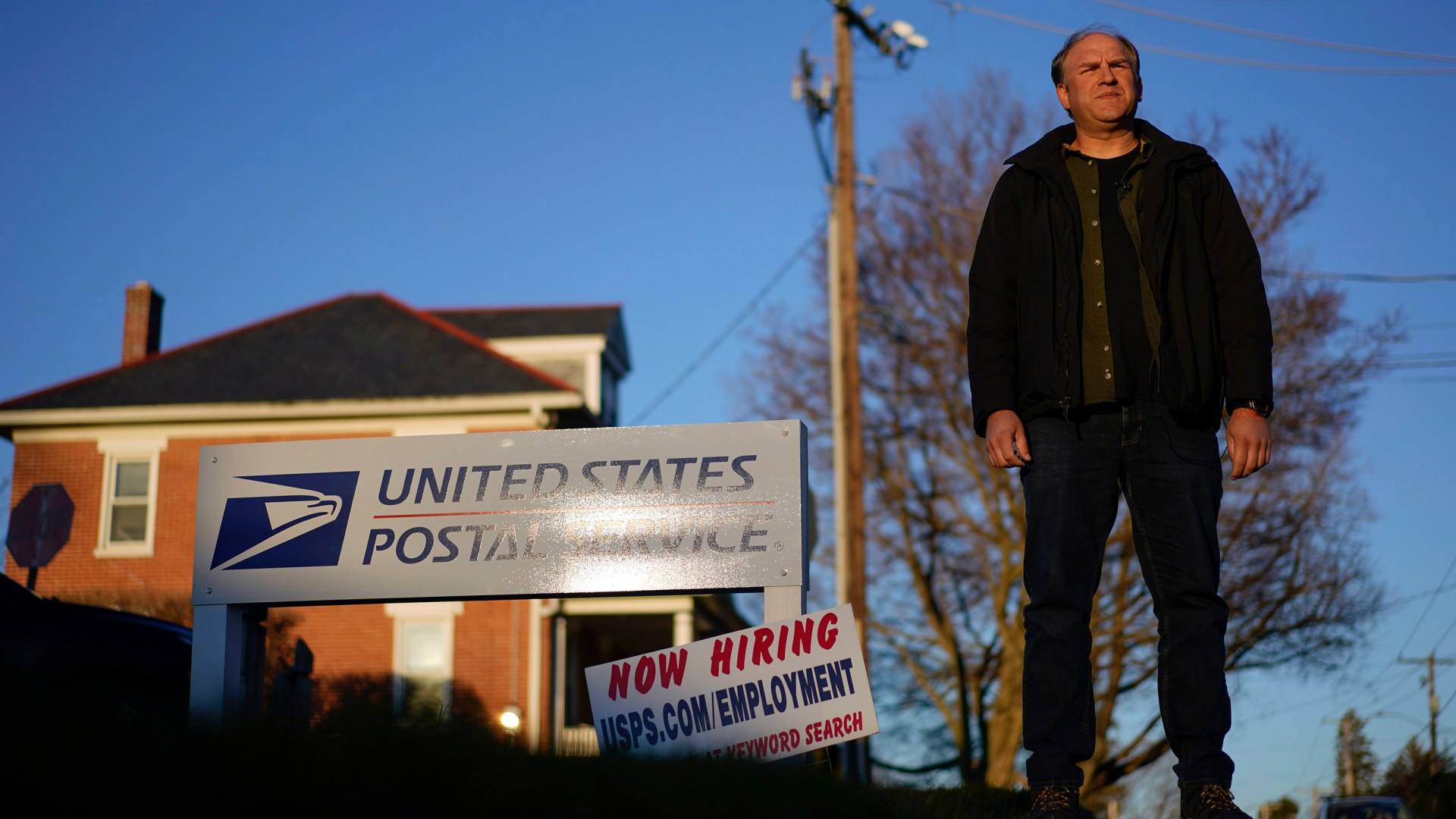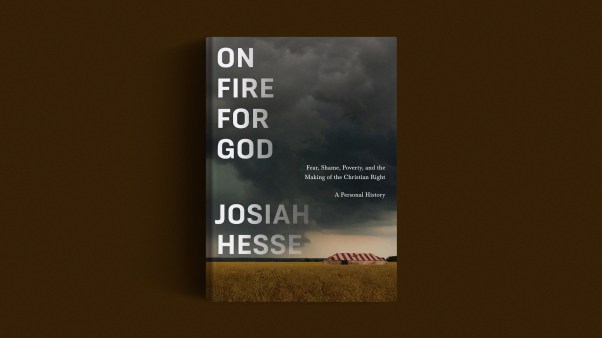Update (June 29, 2023): The Supreme Court ruled unanimously in favor of a Pennsylvania postal worker who lost his job for refusing to take Sunday delivery shifts due to his Christian observance of the Sabbath.
The court’s opinion, written by justice Samuel Alito, held that accommodating Gerald Groff’s religious practice did not provide an “undue burden” on postal operations, which expanded to Sundays for Amazon delivery.
“An employer who fails to provide an accommodation has a defense only if the hardship is ‘undue,’” the court stated on Thursday. “Faced with an accommodation request like Groff’s, it would not be enough for an employer to conclude that forcing other employees to work overtime would constitute an undue hardship.”
Groff’s counsel with the law firm First Liberty celebrated the ruling as a victory for religious liberty, and Groff said in a statement, “I hope this decision allows others to be able to maintain their convictions without living in fear of losing their jobs because of what they believe.”
Maybe if Gerald Groff had only asked for one Sunday off, that would have been okay. Or he could have just asked for part of Sunday, shifting his schedule to deliver the mail after church, and that would have been fine too.
But Groff was a Sabbatarian, refusing to deliver mail any Sunday or any part of a Sunday. According to solicitor general Elizabeth B. Prelogar, that meant it was “unwarranted” and “inappropriate” for him to ask the United States Postal Service to accommodate his ongoing, every-week religious commitment.
“It’s about the nature of the accommodation,” Prelogar told the US Supreme Court during oral arguments in Groff v. Dejoy on Tuesday. “You’re just excusing someone from doing part of their job.”
The attorney representing the evangelical postal worker protested that wasn’t the right way to think about religious accommodations. The mail carrier wasn’t shirking. There were just limits on his time, because of his faith.
“It’s not a get-out-of-work free card,” attorney Aaron Streett said. “He offered to work Saturdays and non-Sunday holidays.”
The court will now have to consider when an employer has to accommodate an employee’s religious practice. In the Equal Employment Opportunity Act of 1972, Congress said that employers have to be accommodating—as long as that doesn’t cause “undue hardship” to their businesses. A few years later, in Trans World Airlines v. Hardison, the Supreme Court ruled that a “hardship” meant anything “more than a de minimis cost,” using the Latin for “minimum” or “trifling.”
The nine justices and two lawyers debated that 46-year-old ruling for more than an hour, questioning whether that standard was good and whether the court should even make that call.
“For decades, this has been the rule,” justice Elena Kagan said. “Congress has had that opportunity to change it. Congress has not done so.”
Some of the justices indicated that out of respect for precedent, the standard for religious accommodations should be left alone. The attorney representing Groff countered that the court had made a mess of the “undue burden” standard, and now it is the court’s job to clean it up.
The “de minimis test makes a mockery of the English language,” Streett argued. “The court can and should construe ‘undue hardschip’ according to its plain text to mean significant difficulty or exopense.”
The justices did not seem convinced, however, that just clarifying the linguistic formulation of the rule would really solve the problem. One said the court could not provide “a full manual” dealing with every situation. Another pointed out that “hardship” would look different for different businesses, depending on the company, its size, and the specific request. Even paying employees an extra $1 an hour to cover for Groff on Sunday shifts could shut the post office down, the justices said.
“What’s clear to me after all this discussion,” Justice Sonia Sotomayor concluded, “is that as much as we might want to provide absolute clarity, there is none we can give, is there? Because it’s all contextual.”
Mail carrier was committed to keeping his Sabbath
When Groff started working as a fill-in mail carrier in Quarryville, Pennsylvania, in 2012, just south of Lancaster, the context didn’t require Sunday mail delivery at all. The post office didn’t deliver on Sundays. It hadn’t for 100 years.
Groff nonetheless let his bosses and coworkers know he was a committed Christian who had seriously considered becoming a missionary. On Sundays, he and his family attended the Lancaster campus of a multisite nondenominational church. The rest of the week, he drove his Honda CR-V from mailbox to mailbox, hitting 500 to 800 a day, depending on the route.
“I just really enjoyed the job from the very beginning,” Groff told the Associated Press. “You get to be out in the countryside, in the fresh air. … It’s a beautiful place to live and work and I just really enjoyed it and planned to make a career of it unless God called me back to the mission field somewhere.”
Things changed in 2013, when Amazon asked the USPS to deliver its packages on Sundays. The company, which started as an online marketplace for books, had expanded into what one journalist that year named “The Everything Store.” Amazon earned $274 million in 2013 and was touting the successes of streaming video, an updated e-reader, and the web services that it provided to everyone from Instagram to the CIA.
But the tech giant also kept delivering packages. It fact, it was shipping more than ever to more and more people. CEO Jeff Bezos noted in his 2013 annual report to shareholders that through the Prime membership program, Amazon promised two-day delivery to millions across the country and tens of millions around the world. Amazon was developing bike messenger corps in India, experimenting with drone deliveries in the US, and asking for a special delivery deal with the USPS. The company got what it asked for.
“It’s a good time to be an Amazon customer,” Bezos said. “You can now … have packages delivered to your door even on Sundays.”
Change didn’t come to middle Pennsylvania immediately. Groff continued delivering mail during the week and taking Sundays to honor the Sabbath, and no one asked him to change until 2016. Then the postal hub in Lancaster started making Sunday deliveries. At first it was voluntary, according to court records. But there weren’t enough carriers, and soon everyone was assigned to Sunday shifts on a rotating basis.
Groff could see there was going to be a problem, so he asked to transfer to a more rural post office. He was reassigned to Holtwood, Pennsylvania, an unincorporated township on the Susquehanna River about 50 miles south of Harrisburg.
It didn’t matter. Amazon kept expanding—even to Holtwood. In 2017, the mail carriers there were told they too would have to work on Sundays. Groff made a deal with another postal worker to take all his Sunday shifts, so he could practice his faith. But when the coworker got hurt in mid-December that year, no one else wanted to cover for Groff every single weekend.
According to court documents, Groff formally requested a religious accommodation to allow him not to work on the day he considered the Sabbath.
The head of the post office offered to let Groff start later, so he could go to church in the morning, but Groff said that wouldn’t work. He had to rest the entire day on Sunday. The post office head, according to the subsequent lawsuit, also said Groff could take another day as his Sabbath if he wanted. Groff said it had to be Sunday. He wouldn’t work on Sunday.
He was scheduled to deliver mail that day anyway. He chose not to show up and filed another request for religious accommodation.
The “requests were never formally granted or denied,” Groff’s lawyer noted in the subsequent lawsuit, “but in practice, they were denied.”
This caused some turmoil in the post office. One mail carrier quit. Another filed a grievance through his union, complaining of unfair treatment.
A reporter asked Groff outside the Supreme Court on Tuesday what he would say to the coworkers who felt burdened, having to cover for him. They probably wanted to go to church too, or maybe their kids’ Little League games. How would he respond to them?
“What I would say is, I honestly don’t know,” Groff said.
In January 2018, Groff was suspended for seven days. He was told it was discipline for his misconduct. He still refused to show up on Sundays and was suspended for two full weeks. After that, he resigned and filed suit.
“We really can’t go back and change what happened to me,” Groff told the AP. But people “shouldn’t have to choose between their job and their faith” and a court ruling could help others in that kind of situation.
Religious minorities hit hardest
There are others in the US who struggle to win religious accommodations. And they are not, for the most part, white evangelicals.
“Such discrimination disproportionately affects minority communities,” lawyers representing Sikhs and Muslims wrote in a friend-of-the-court brief filed with the Supreme Court on behalf of Groff’s case. “The issues at stake in this case relate directly to the right of practitioners of minority faiths in America to avail themselves of employment opportunities on equal terms.”
In one federal case, a company said it couldn’t hire a Sikh man because it might make customers uncomfortable. That was considered sufficient, under the current standard.
A Muslim employee wasn’t allowed to take a meal break at sunset during Ramadan, to break his fast, because the accommodation could cause other employees to resent him. The company didn’t offer any evidence for this assertion, but just argued that the religious accommodation could, hypothetically, impact morale. That was also considered acceptable by federal courts.
In the 1990s, Sears refused to hire Seventh-day Adventist technicians, saying that Saturday was the busiest day for appliance repairs. Religious liberty lawyers pointed out that Sears records showed the busiest day was actually Tuesday. According to the federal court, the factual inaccuracy about the expected hardship of hiring Seventh-day Adventists did not undercut the company’s claim there would be some hardship. The court ruled Sears didn’t have to hire Sabbatarians.
According to a Jewish legal group, “The reported litigated cases are a small tip of a huge iceberg.”
The solicitor general argued to the Supreme Court on Tuesday that the few cases cited by religious minorities didn’t give the full picture. Lower courts don’t always side with employers against religious employees, she said, and while each case is specific and the case law is complicated, authorities have done a good job over the last 46 years “drawing the right lines.”
“It’s just incorrect to say that there’s not a substantial amount of protection” for religious workers, Prelogar said.
Some legal groups filing friend-of-the-court briefs in the case went even further, arguing that any change to the religious accommodation rules would be unfair to businesses. American Atheists urged the justices to respect the rights of the “employer to organize an effective and efficient shift schedule to meet its staffing needs.”
The group also claimed that any accommodation for religious observances undermined the First Amendment guarantee that Congress shall make no law respecting an establishment of religion.
The Freedom from Religion Foundation warned that if the post office accommodates a mail carrier who doesn’t want to work on Sunday, then other businesses will have to accommodate all sorts of unreasonable demands.
“This includes religious claims related to employees denigrating LGBTQ+ persons, ingesting controlled substances, proselytizing in the workplace, sharing opinions on abortion, [not] transporting alcohol, and [not] working with someone of the opposite sex,” the group wrote. “The list is endless and will continue to evolve over time.”
The court is not, however, considering requiring accommodation for every religious practice in every workplace. The justices have to decide on the rule for determining when accommodations should be required. Is any hardship more than a minimum or a trifle too much?
Justice Neil Gorsuch, who has been the deciding vote in a number of close cases the past few years, suggested the simplest thing to do might be to reject the “de minimis” language the court used in 1977, and return to the language of “undue hardship.”
“Some courts have taken this de minimis language and run with it … and that’s wrong. And we all agree that’s wrong,” Gorsuch said. “Maybe we could do a good day’s work and put a period at the end of it by saying that that is not the law.”
The Supreme Court is expected to rule before the justices recess for the summer.











